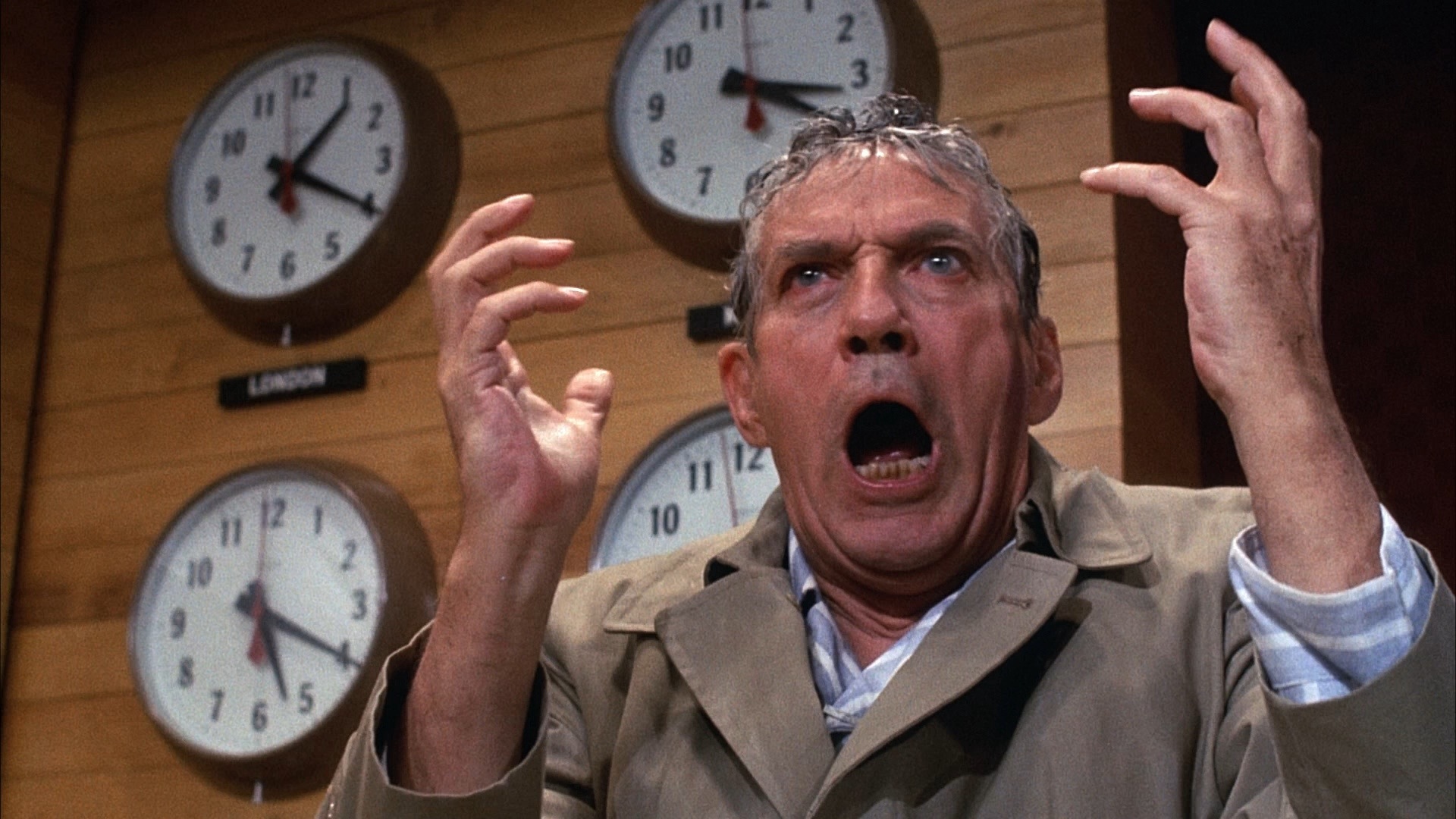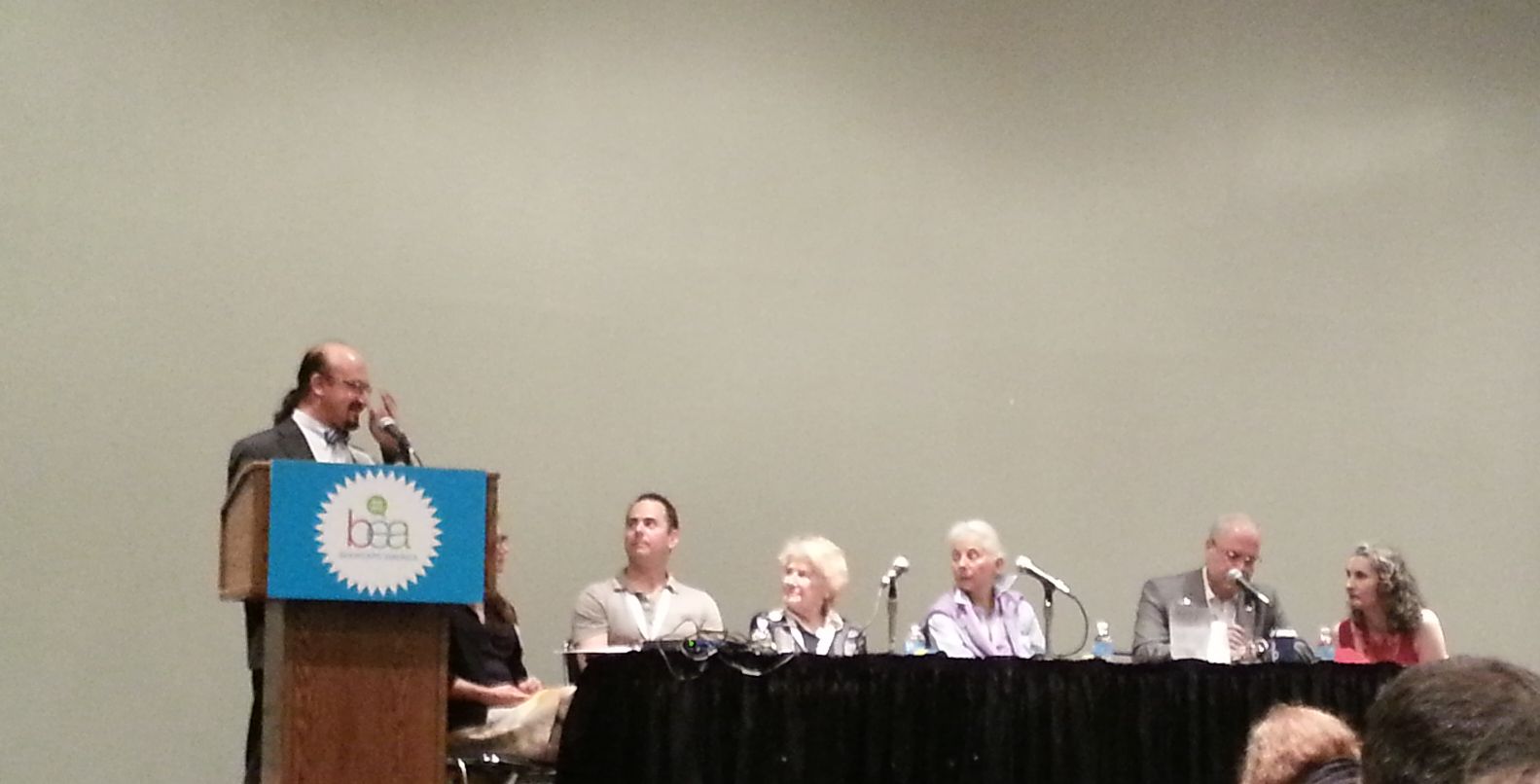This program contains two segments. The first segment is an investigation into the realities of publishing translated literature, following up on frustrations expressed by Open Letter’s Chad Post, after agent Oscar van Gelderen retracted Arnon Grunberg’s book because of “poor sales.” The segment features Post, The Complete Review‘s Michael Orthofer, and critic Scott Esposito. (Oscar van Gelderen did not return our phone calls, emails, and tweets for comment on this story.)
The second segment features Dave Itzkoff, who is most recently the author of Mad as Hell, a book that chronicles the making of Network.
Listen: Play in new window | Download
Guests: Dave Itzkoff, Chad Post, Scott Esposito, and Michael Orthofer.
Subjects Discussed: The Howard Beale of translated literature, Open Letter Books, Oscar van Gelderen, Arnon Grunberg, why success in other countries can’t be easily repeated in the United States, relative success of translated literature, Nordic noir, Pauline Kael decrying Paddy Chayefsky’s righteousness, the New York Times Book Review, whether or not Itzkoff is angry, the emotional qualities of buildings, Paddy Chayefsky’s early dramaturgical assaults on television, the comforts of cynicism, The Hospital, the possibility of Network becoming a more earnest movie in earlier drafts, Chayefsky attending television boardroom meetings in sweatpants, what Chayefsky could get away with because of his esteemed reputation, Walter Cronkite, the tendency for people to believe that television was an infallible medium in the 1970s, Chayefsky’s extraordinary creative control, Shaun Considine’s Mad as Hell, Chayefsky’s ability to work the system, Chayefsky exploiting a clause during The Bachelor Party to live in extraordinary affluence, Chayefsky’s demands for ultimate authority, Arthur Penn, the problems that emerge when firing too many directors in a short period of time, Chayefsky’s meticulous scripts, intransigent self-editing, Chayefsky’s self-flagellation, resisting studio notes, Chayefsky’s notes to himself, how the tight deadlines of television contributed to the hastily devised third act of Marty, Chayefsky’s presence on the set and during the casting process, the Paddy light on Network, Chayefsky’s intense stare, whether or not Chayefsky needed actor-friendly directors like Sidney Lumet, Lumet’s rehearsal process, getting access to Kay Chapin’s diary, calling around vs. looking through papers, Chayefsky’s letters of apology, Faye Dunaway’s difficulty, Itzkoff’s inability to get access to Dunaway, finding Peter Finch’s daughter, Delbert Mann, Chayefsky’s relationships with directors, the battle between Chayefsky and Ken Russell on Altered States, the ultimatum that Sidney Lumet gave to Faye Dunaway to ensure her casting as Diana Christensen, the appeal of an unlikable character to Dunaway, the role of women in the workplace in the 1970s, the flack that Barbara Walters got for a $1 million salary, Ned Beatty lying like a snake to get the role of Arthur Jensen, Jimmy Stewart considered as Howard Beale (with accompanying impression), actors snapped up on the basis of a single audition, why New York locations were hard to find in 1976, stairwells that link two different cities, the New York Stock Exchange’s diffidence in allowing Chayefsky’s anti-corporate speeches to be filmed there, recreating a functioning television studio in Toronto, unions, romanticizing decrepit 1970s New York, filming second-unit shots of people shouting “I’m as mad as hell!” in abandoned buildings, the difficulty of Peter Finch delivering the “mad as hell” speech, Lumet’s desire to work as rapidly as possible,
EXCERPT FROM SHOW:
Correspondent: Dave, you’re not looking terribly indignant, but how are you doing?
Itzkoff: I have nothing to be angry about.
Correspondent: Really?
Itzkoff: But the day is young.
Correspondent: The day is young?
Itzkoff: I mean, it’s only 11 AM. It’s a Tuesday.
Correspondent: How much rage do you typically go through in a 24 hour period?
Itzkoff: Actually, it can be a lot. It really depends on my morning commute. I take the subway. That is definitely a source of a lot of ire and provocation, depending upon how crowded or empty my train.
Correspondent: Yes. But for now, ensconced within the New York Times Building, you are calm and sanguine.
Itzkoff: Exactly. As the building tends to do to one, yes.
Correspondent: Really? This building has an outside power? A karma? You can levitate it like the Pentagon? The Pentagon like Abbie Hoffman?
Itzkoff: (laughs) It seems to have a calming influence.
Correspondent: Well, let’s get into Paddy Chayefsky and Network, the film that this book, Mad as Hell — not the only book, as I have pointed out. There’s another book here called Mad as Hell that also deals with Paddy Chayefsky on the table.
Itzkoff: That’s right.
Correspondent: So it’s not just you. Anyway, Network was actually not Paddy Chayefsky’s first dramaturgical assault upon television. In 1955, and you did not note this in your book, Chayefsky wrote a script called “The Man Who Beat Ed Sullivan.” And this is about an Ohio TV host. He was going to match the length of a three-hour talent show in this script that he wrote. You do mention The Imposters, this pilot that Chayefsky wrote in 1969 about a fictional television executive who had the wry name of Eddie Gresham, which I thought was funny. And it was not until Chayefsky started hanging out with Richard Wald and attending various television boardroom meetings that he came upon Network. I’m curious about this. I mean, he drew from his life experience for The Bachelor Party and for Marty. Is it safe to say that he needed experience for Network before he could actually really take on television in this indelible move that we continue to quote and continue to reference today?
Itzkoff: Right. Well, you know, in some ways the book is trying to make the point — I mean, I hate stating the thesis so bluntly like this, but his whole life’s work, in a sense, is bound up in Network. And, yes, it is nominally and very much a story about television and people who inhabit television. But it is also a story about everything that ever upset him or irked him or bothered him in his life. And to some extent, a story that he was rewriting and rewriting not only in works that had to do or were set in the world of television. But if you look at some of the other early television plays, going all the way back to Marty and even works that predate Marty, you will see there is a recurring idea or a theme about characters who have a kind of simmering rage. People who are unfulfilled or can’t express themselves and then are often not always given an opportunity to cut loose or say what they really think and it is explosive. So that is an idea that he refines and revisits. It comes up not only in obviously his drama, but in his own life. That he’s somebody who often feels that the ideas that he is trying to communicate to his audience are not being received or they’re not getting in the way that he meant them. And that frustrates and annoys him. And that makes him an angry person. Not unfulfilled, but he often feels that he’s falling short of whatever goal he set for himself. And so Network becomes the vehicle for all of this, compounded by a feeling that media itself and a medium that he came up with was at a real crossroads. Something could potentially happen, at least in his lifetime or in the era that he was writing. Something might happen that could send it in a very different direction. And that kind of corruption was representative of a lot of other things that were happening in life in that moment.
Correspondent: Based off of your research, is it safe to say that perhaps the cynicism that is attached to Network came from having to silently observe all of these boardroom meetings and these people moving money around? Going ahead and gutting any kind of credible programming, the kind of wonderful drama, the news that Chayefsky himself championed?
Itzkoff: I think that that was something that was even refined over time during the writing of this script. I mean, you reference a situation that happens in the book where he does visit both NBC and CBS just to do research for a movie about television. When he met with Richard Wald, who was then the President of NBC News, he told Wald he didn’t know yet whether he was going to write something that was maybe more a kind of “day in the life” piece that would have lots of moving parts and characters. Almost in the way that The Hospital was. Except in just a slightly different setting. Or maybe he would write something that was a little more satirical. And Wald says now that he had a pretty strong sense that that’s the direction Chayefsky was going to go in. But if you want to call it cynicism.
Correspondent: A refreshing cynicism, I would say.
Itzkoff: (laughs)
Correspondent: I mean, I watched the movie twice. I had to see it a second time and I hadn’t seen it in years. And it just bathed me in such a wonderful, exuberant cynicism. Maybe skepticism perhaps is the better term.
Itzkoff: Sure. And it’s fascinating. You can look at earlier incarnations of the script and see that there were moments where it might have gone in more earnest directions. I’m sure we’ll get into some of the nitty-gritty later, but characters who we now think of as having mean streaks or really were just going for it all, they could have been much nicer people. It could have had a happier ending. Something about him told Chayefsky this was not really how life worked.
(Loops for this program provided by danke, JoeFunktastic, smpulse, supertex, DJLikwid2013, and chanho17. Also Kevin MacLeod’s “Call to Adventure” through Free Music Archive.)
The Bat Segundo Show #536: Dave Itzkoff and Translated Literature: Mad as Hell (Download MP3)

